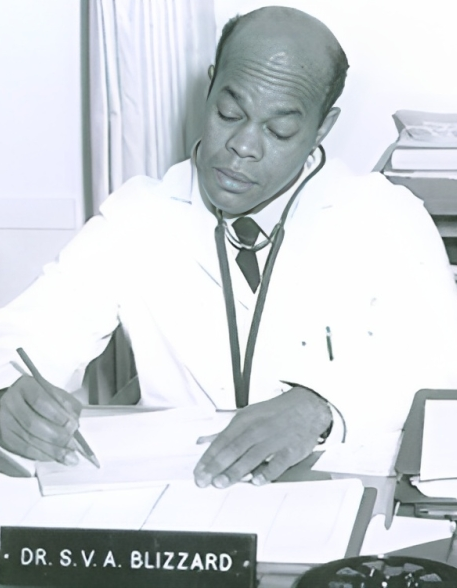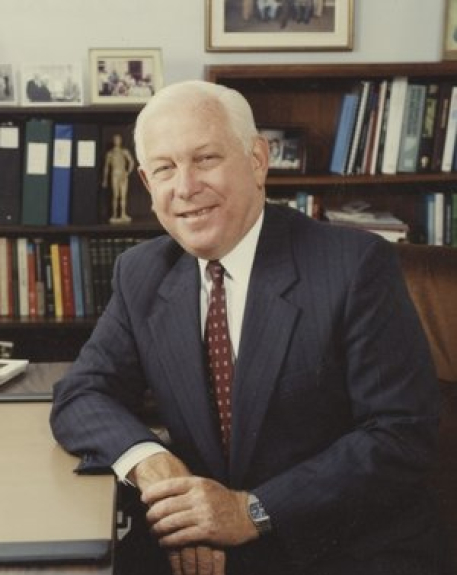2012 INDUCTEE John Dirks, MD Global Health, Leadership in Organizational Development, Genitourinary Tract
August 20, 1933
(Winnipeg, Manitoba)
MD, University of Manitoba (1957)
2012: Queen Elizabeth II Diamond Jubilee Medal
2012: Honorary DSc, University of Toronto
See All AwardsAwards & Honours:
2012: Queen Elizabeth II Diamond Jubilee Medal
2012: Honorary DSc, University of Toronto
2010: Lifetime Achievement Award, The Biotechnology Initiative
2009: Honorary DSc, University of Manitoba
2009: Sanford Fleming Medal, Royal Canadian Institute for the Advancement of Science
2008: Member of the American Academy of Arts and Science
2006: Member of the Order of Canada
2005: NFK International Medal, National Kidney Foundation, USA
2005: Roscoe Robinson Award, International Society of Nephrology
1982: Fellow of the Royal Society of Canada
1975: Fellow of American College of Physicians
1962: Fellow of the Royal College of Physicians and Surgeons of Canada
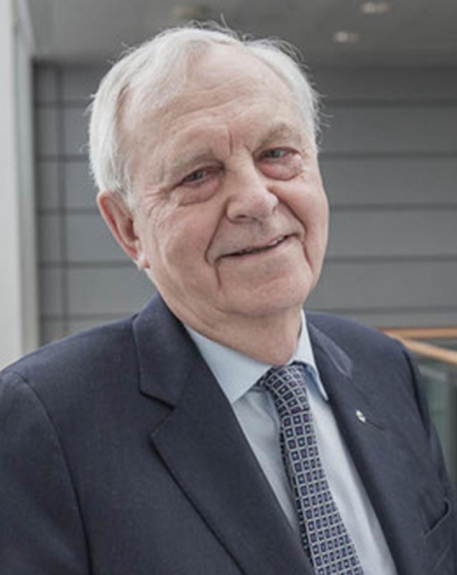
Established the Canada Gairdner Awards as one of the top three most prestigious prizes in the world for medical research
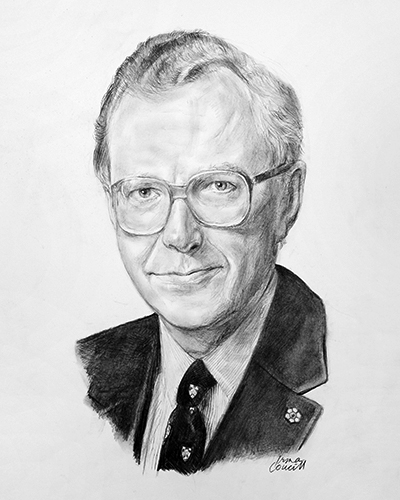
An exemplary builder in health research and innovation and committed global health advocate
As a clinician-scientist, Dr. Dirks has made major contributions in renal physiology and served in leadership positions in medical faculties across Canada. He has also nurtured his interest in international health at the Aga Khan University in Pakistan. But the transformation of the Gairdner Foundation and its international awards program stands as Dr. Dirks’ most enduring work. The Gairdner Awards (recently renamed the Canada Gairdner Awards) acknowledge the best and most important research accomplishments in biomedical science. With imagination and persistence, Dr. Dirks brought radical changes to the organization that raised the international profile of the awards and ensured the continued significant impact of the award for years to come.
Key Facts
Published 155 peer-reviewed papers
Travelled the world to ensure widespread dissemination of new knowledge in nephrology
Established the National Gairdner Scientific Program in which Gairdner laureates visit universities to connect with students and the wider community
Created the first International Prize in Global Health
The Canada Gairdner Award is a consistent predictor of the Nobel Prize, with 95 awardees having gone on to win a Nobel Prize to date
Professional timeline
Impact on lives today
In a career now spanning five decades, Dr. Dirks has made huge impacts in every field he has touched, from scientific and academic achievements in nephrology to the promotion and advancement of excellence in medical research. His research in nephrology has added significant knowledge to the field and his leadership in faculties of medicine has strengthened the modern academic health centre mandate across the country. Moreover, with creativity and imagination, Dr. Dirks brought substantive changes to the Gairdner Foundation without sacrificing its distinct Canadian style. As a result, there remains a renewed awareness of Canada’s contribution to medical and clinical research around the world.
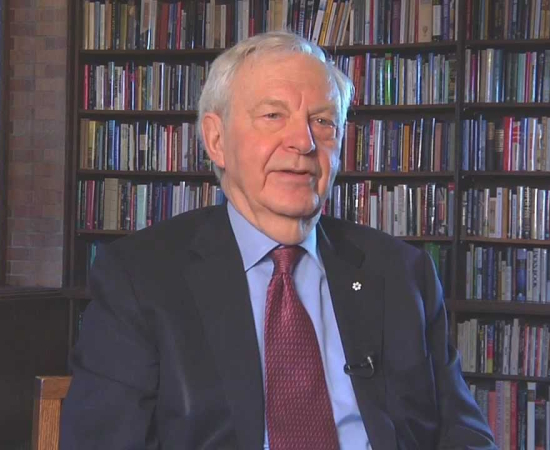
2025
-
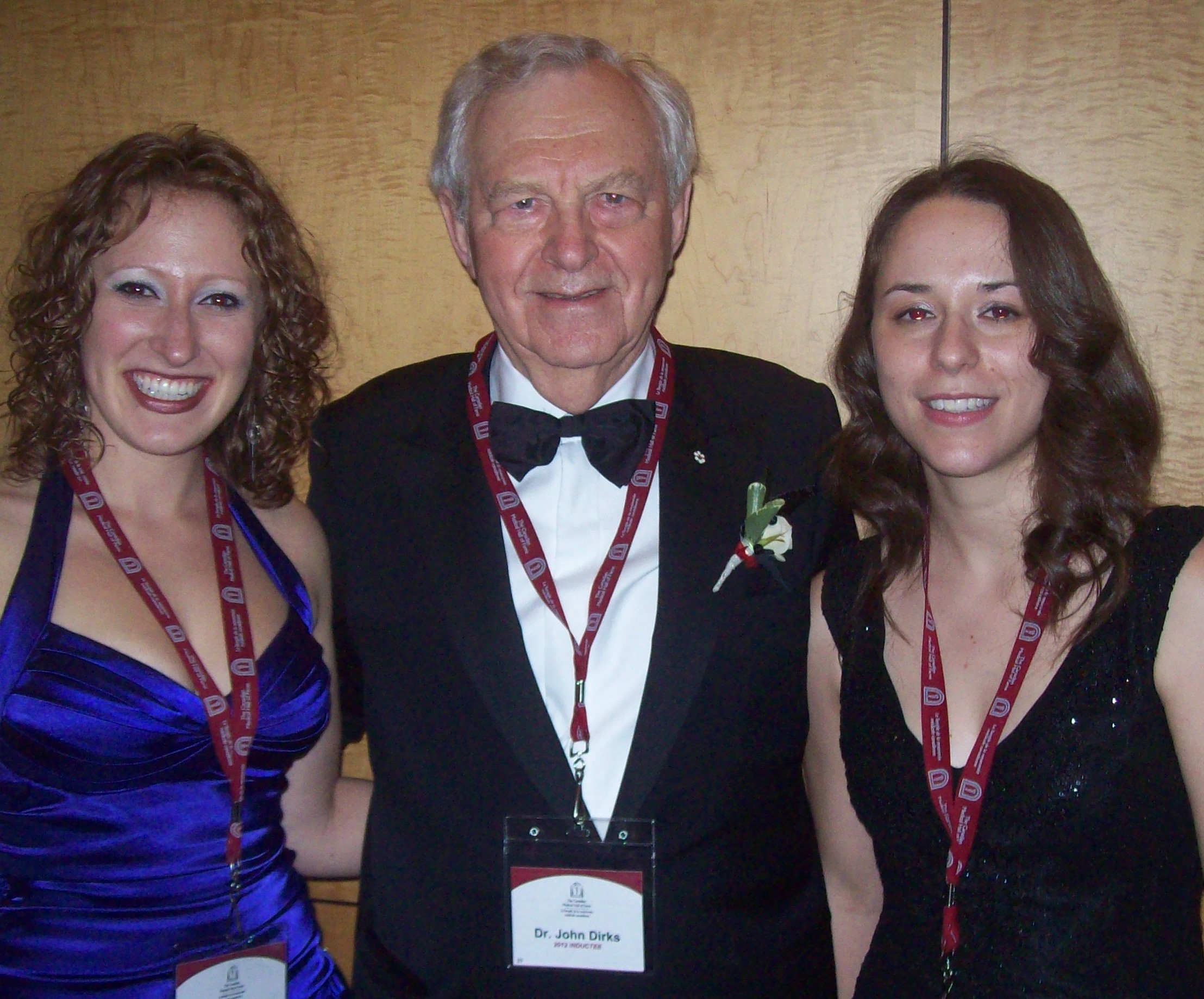
John Dirks inducted into the Canadian Medical Hall of Fame
Toronto, Ontario
-
To honour the significant contributions of Dr. Dirks, the International Society of Nephrology established the John Dirks Fellowship and John Dirks Colloquium and Symposium
-

Dr. John Dirks was chosen as the founding Chair of the International Society of Nephrology Commission for Global Advancement of Nephrology (COMGAN)
Global Health, Leadership in Organizational DevelopmentAt COMGAN, he pioneered educational programs to improve the health of people all over the globe.
-
His vision extended beyond Canada’s borders in 1994 when he was made Dean-Rector of Aga Khan University in Pakistan
Leadership in Organizational Development -
Dr. Dirks heads the Gairdner Foundation
Leadership in Organizational DevelopmentAfter almost a decade on the Medical Advisory Board of the Gairdner Foundation, Dr. Dirks became President. Over his tenure, he transformed the award into one of the most sought-after prizes in medical research.
-
His capacity to build up research strength in medical schools was noticed by faculties of medicine across Canada
Leadership in Organizational DevelopmentIn 1976, he became Chair of Medicine at University of British Columbia and, in 1987, the Dean of Medicine at the University of Toronto. While in Toronto, Dr. Dirks created one of the largest health medical biotechnology clusters in North America.
-
After three successful years at the National Institutes of Health, Dr. Dirks moved to McGill University’s Royal Victoria Hospital as head of the Division of Nephrology
Genitourinary Tract, Leadership in Organizational DevelopmentThe Division quickly became a leading centre in kidney disease research.
1960
He made his name as a well-known contributor to new knowledge.

